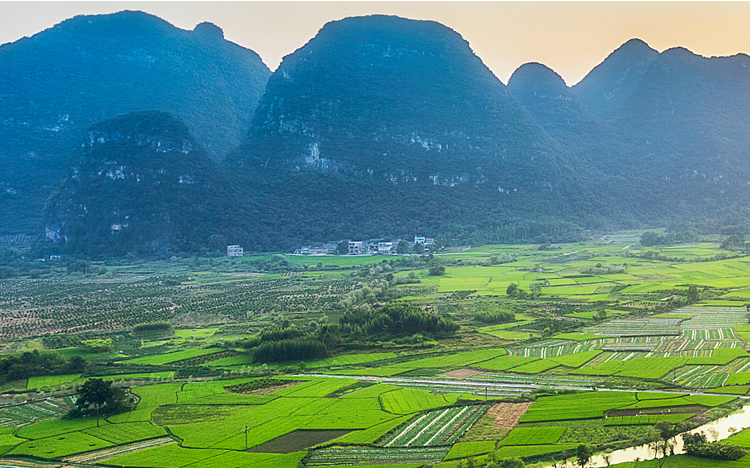Endangered Cao-vit gibbon population rises in Guangxi
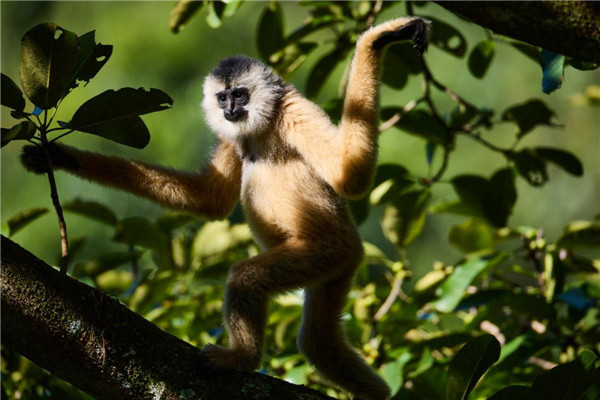
The population of eastern black-crested gibbons, also known as the Cao-vit gibbons, has steadily increased in recent years at the Bangliang Gibbon National Nature Reserve in the Guangxi Zhuang autonomous region. [Photo by Huang Songhe/for chinadaily.com.cn]
The population of eastern black-crested gibbons, also known as the Cao-vit gibbons, has steadily increased in recent years at the Bangliang Gibbon National Nature Reserve in the Guangxi Zhuang autonomous region.
The reserve is now home to five groups comprising 36 Cao-vit gibbons, a significant increase from the initial discovery of three groups with only 19 individuals in 2006, according to the reserve's administration.
This unique primate species is classified as critically endangered by the International Union for Conservation of Nature. It was once believed to be extinct and was rediscovered along the China-Vietnam border in the early 21st century.
An IUCN story published last December showed that the global population of the Cao-vit Gibbon is estimated to be only 100-135 individuals, all located in an area across southern China and northern Vietnam.
Over the past decade, the countries have joined hands to restore the habitat of this rare wildlife species.
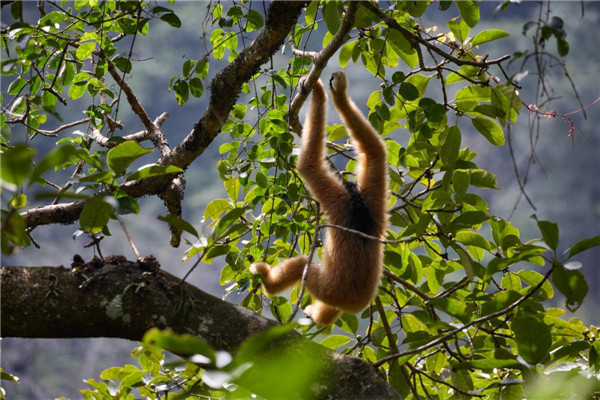
The population of eastern black-crested gibbons, also known as the Cao-vit gibbons, has steadily increased in recent years at the Bangliang Gibbon National Nature Reserve in the Guangxi Zhuang autonomous region. [Photo by Huang Songhe/for chinadaily.com.cn]
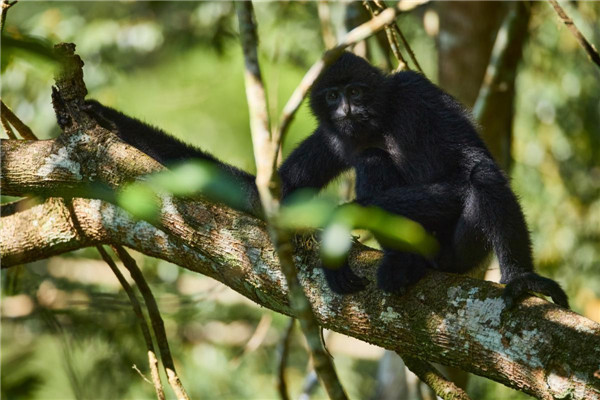
The population of eastern black-crested gibbons, also known as the Cao-vit gibbons, has steadily increased in recent years at the Bangliang Gibbon National Nature Reserve in the Guangxi Zhuang autonomous region. [Photo by Huang Songhe/for chinadaily.com.cn]

The population of eastern black-crested gibbons, also known as the Cao-vit gibbons, has steadily increased in recent years at the Bangliang Gibbon National Nature Reserve in the Guangxi Zhuang autonomous region. [Photo by Huang Songhe/for chinadaily.com.cn]
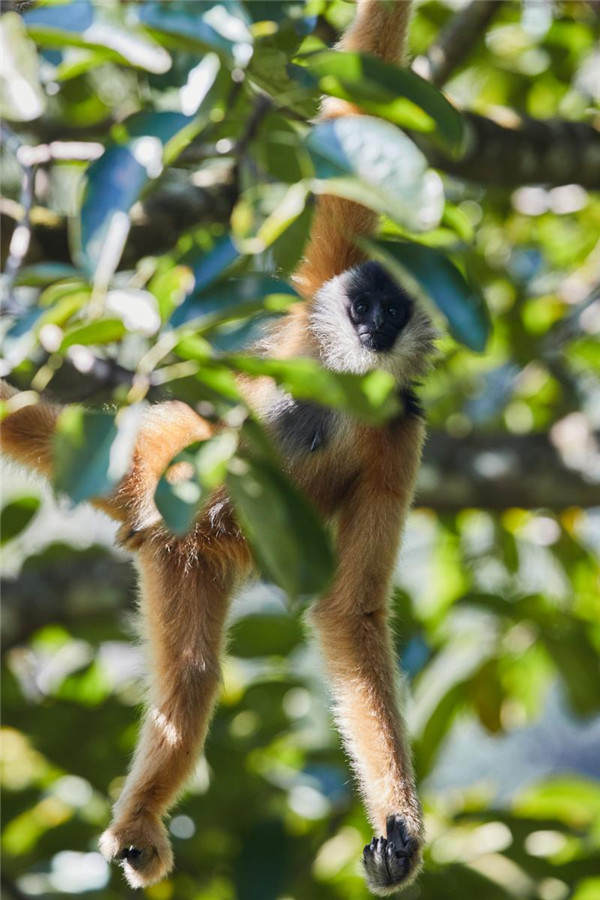
The population of eastern black-crested gibbons, also known as the Cao-vit gibbons, has steadily increased in recent years at the Bangliang Gibbon National Nature Reserve in the Guangxi Zhuang autonomous region. [Photo by Huang Songhe/for chinadaily.com.cn]



